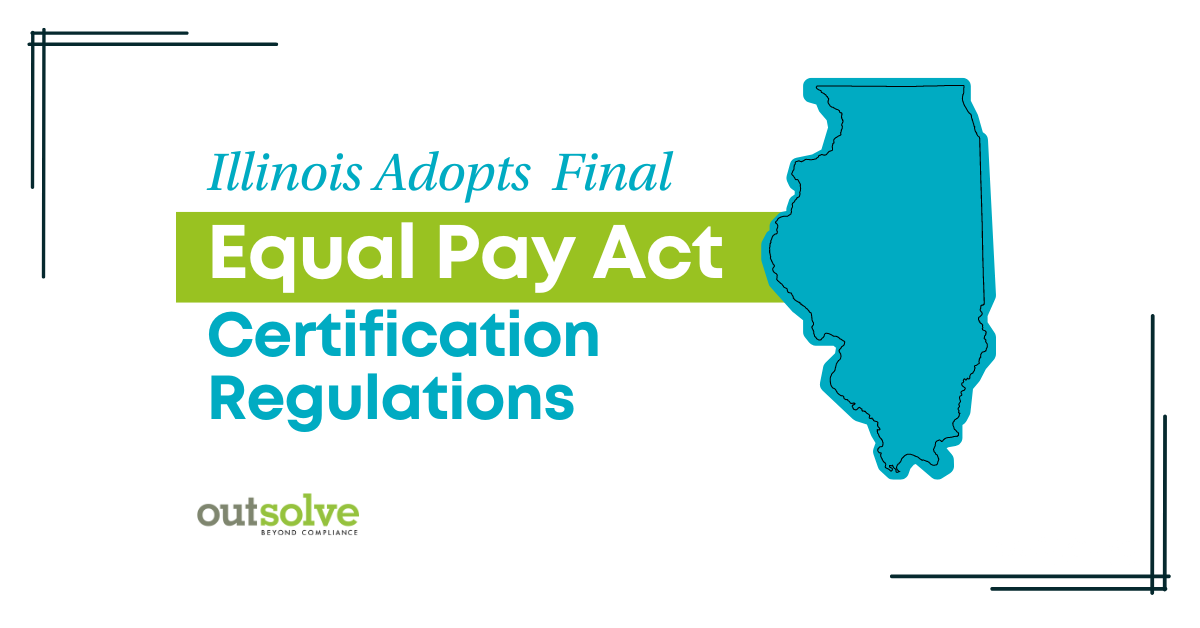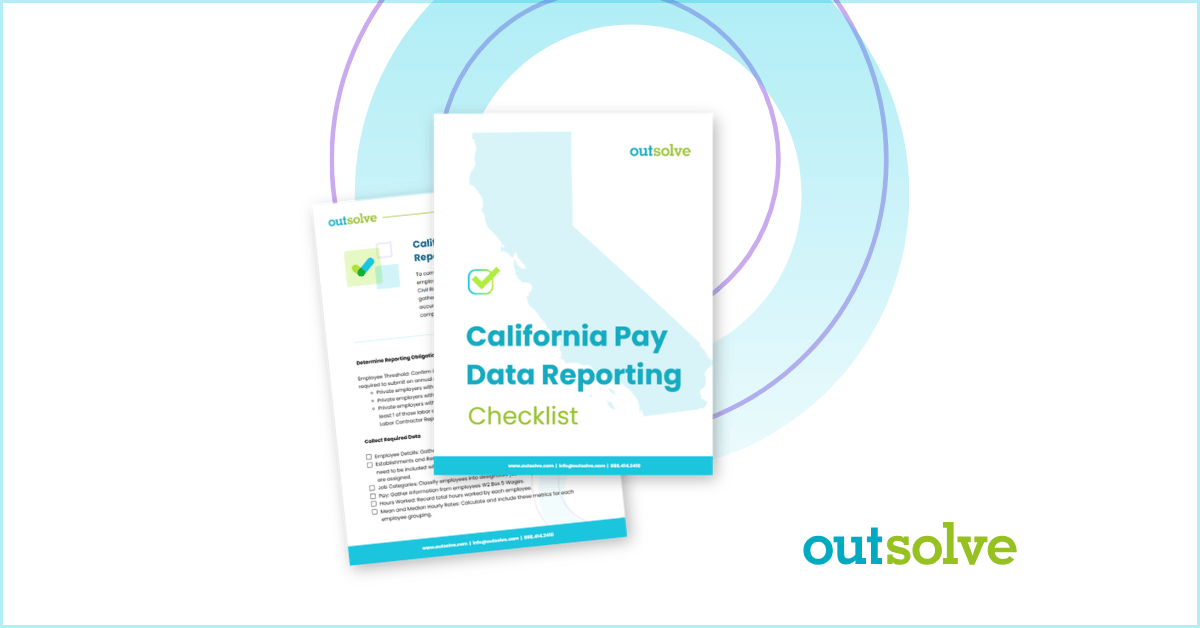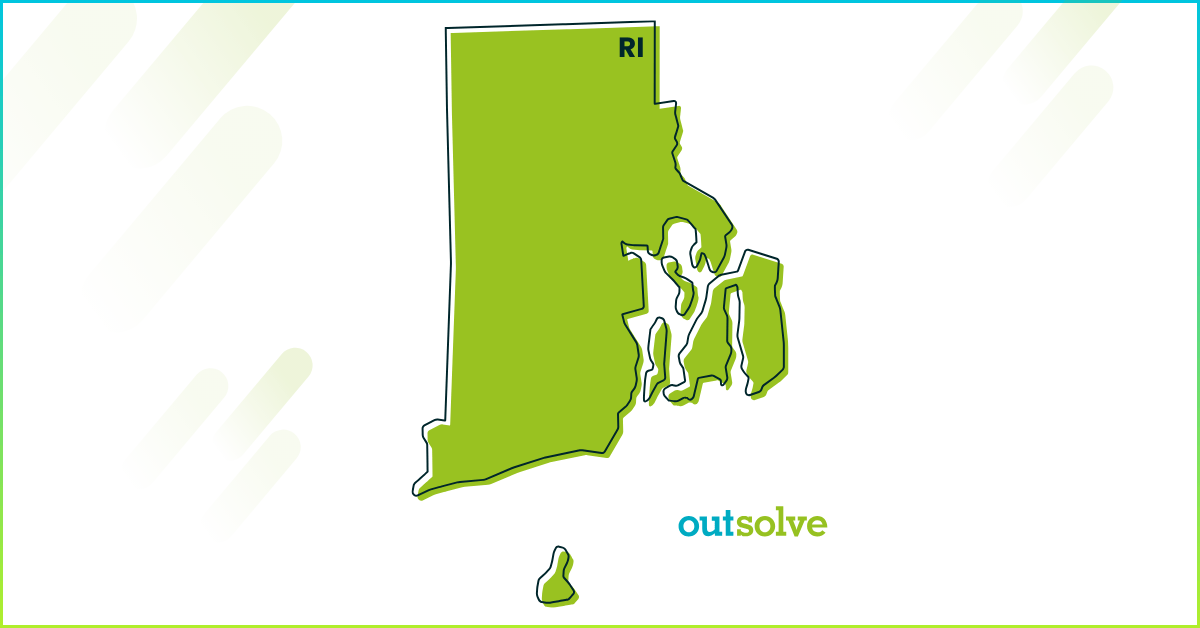2 min read
Illinois Adopts Final Equal Pay Act Certification Regulations
 Debra Milstein Gardner
:
Feb 28, 2023 3:57:40 PM
Debra Milstein Gardner
:
Feb 28, 2023 3:57:40 PM

Equal Pay Registration Certification must be filed between March 24, 2022 and March 23, 2024
On March 23, 2021, Illinois Governor J.B. Pritzker signed into law amendments to the Illinois Equal Pay Act (IEPA) which were further amended on June 25, 2021 to include significant reporting requirements and an equal pay certification. In December 2022, the Illinois Department of Labor (IDOL) adopted final regulations, published in January 2023, implementing these amendments. The law requires private employers with 100 or more employees in Illinois to obtain an “equal pay registration certificate” by filing an application with the Illinois Department of Labor (IDOL) between March 24, 2022 and March 23, 2024. Recertification is required every two years thereafter. Employers will be contacted by the IDOL with a certificate date to obtain the “equal pay registration certificate.” However, “failure to assign a business a registration date does not exempt the business from compliance with” the certification requirements.
For the application of the equal pay certificate, employers are required to provide a list of all Illinois employees during the last calendar year, separated by gender and race/ethnicity categories, as reported in the EEO-1 report. In addition to submitting the federal EEO-1 report, the list must include the following:
1. County in which each employee works2. Date each employee began their employment with the company
3. Total wages, IRS Form W-2 Box 5 compensation amounts paid to each employee during the calendar year, rounded to the nearest hundred dollars, and
4. Any other information the IDOL deems necessary to determine if pay equity exists among employees.
IDOL will provide employers 120 days to prepare for the submission.
The recent IDOL FAQs indicate that beginning in 2023, employers will have to submit the total hours worked by each employee during the payroll year. This was not included in the final regulations but may fall under #4 above.
The regulations establish that within 45 calendar days after receipt of the certificate, the IDOL will issue either the equal pay registration certificate or a Statement of Rejection notifying the business of the reasons the application was rejected. The employer will have 14 calendar days to file an appeal or 30 days to fix the issues raised. The adopted final regulations requires the IDOL to investigate before it suspends or revokes a business’s equal pay registration certificate. The investigation may include audits, employee interviews and depositions, and subpoenas for witness testimony and records.

OutSolve’s Take
Covered employers should immediately review their data capabilities, availability, and accuracy to provide IDOL with the information list above.
Employers should ensure they file the “equal pay registration certificate” within the allowable time. If an employer does not receive a certificate date close to the end of the filing period should reach out to the IDOL. Additionally, once the initial filing is complete, employers should set up a reminder to recertify two years later.
OutSolve can assist in preparing your application for the equal pay certificate, prepare the required data file, and answer any other questions you may have regarding the Equal Pay Act Certification. Employers should consider an analysis of their pay data to identify any potential problem areas with pay differences between women vs. men and minorities vs. non-minorities. For clients who wish to take preventive measures to evaluate their pay practices, OutSolve’s Pay Equity Analysis Services are available. Additional information on OutSolve’s Pay Equity Analysis or other compliance services may be obtained at info@outsolve.com or by calling 888-414-2410. To obtain a copy of the Illinois Pay Data FAQs, reach out to us.
Debra Milstein Gardner has worked in the Equal Employment Opportunity (EEO) and Affirmative Action (AA) space for the past 43 years while working in the public and private sectors in various human resources compliance roles. She began her career working for the Equal Employment Opportunity Commission and then went to the Marriott Corporation for nine years working in EEO, Affirmative Action and field human resource roles. In 1990, Debra founded Workplace Dynamics LLC providing EEO, AA, and DEI consulting services to government contractors. In 2016, Debra sold the affirmative action portion of Workplace Dynamics to OutSolve LLC and works part-time as a Market Analyst. Debra is a sports fanatic, routing for the Baltimore Ravens and all Virginia Tech Hokie teams. She loves to hike and boat in her mountain and lake community of Lake Lure, NC.
Weekly OutLook
Featured Posts

5 Key Compliance Items HR Can’t Afford to Ignore

HR Compliance Checklist: What Every HR Pro Needs to Know
Related Posts
.png)
Beat the Rush: Outsource Federal Reporting Requirements in Q1
The beginning of the year usually feels like a fresh start that brings new business initiatives, goals, and strategies. The work you do between...

California Pay Data Report Checklist for HR Professionals
With changes regarding California pay data reporting taking effect in 2026 and 2027, this is the checklist you need to stay confident that you've got...

What You Need to Know About the Rhode Island Pay Transparency Law
Pay transparency continues to gain traction at the state level, and Rhode Island is no exception. Let’s dive into the details of how this law works...
